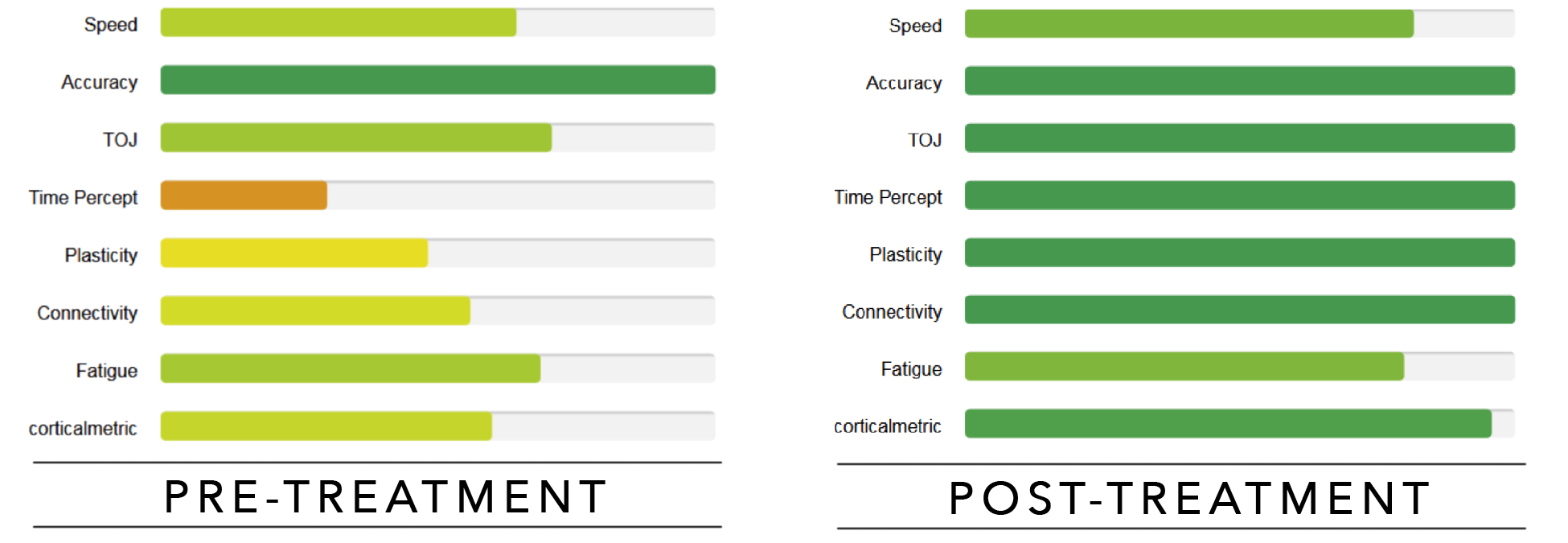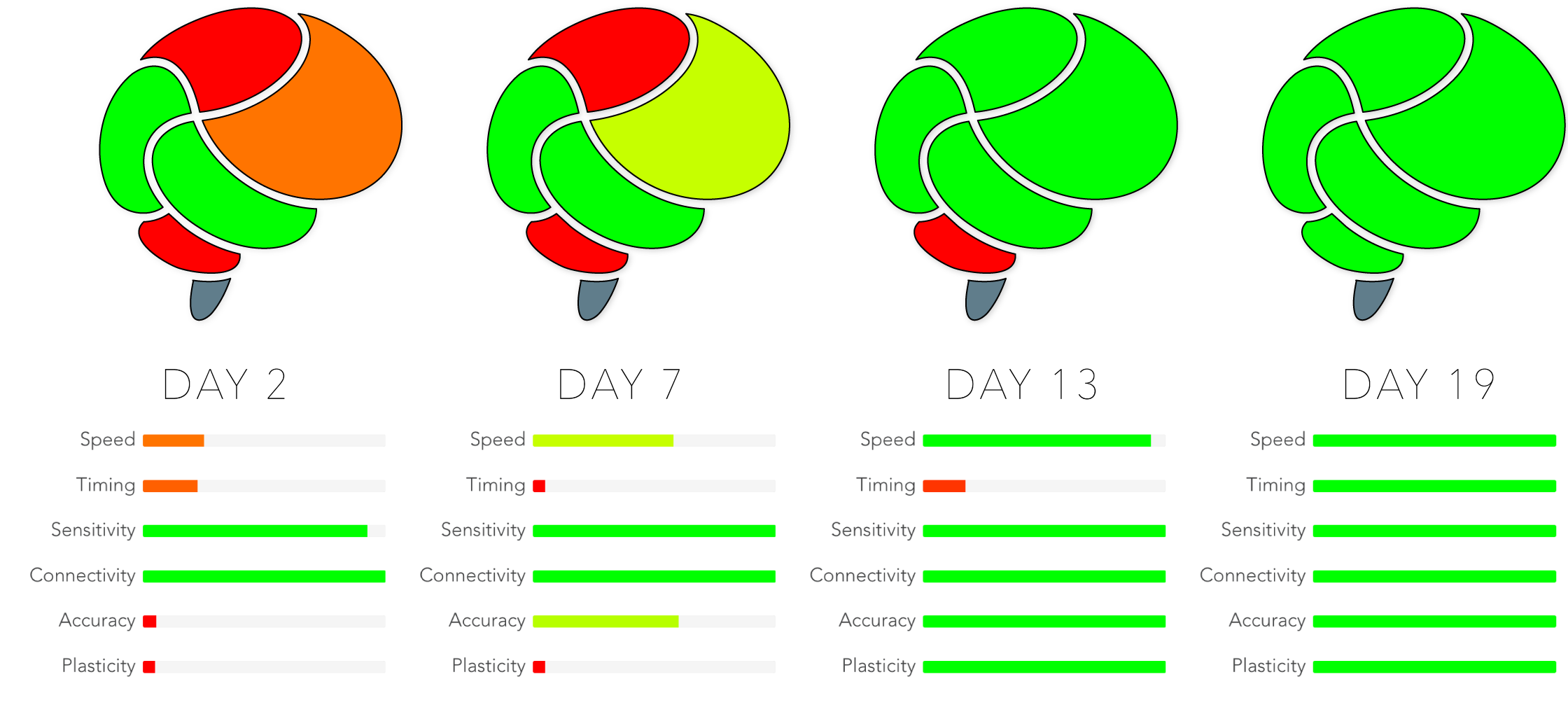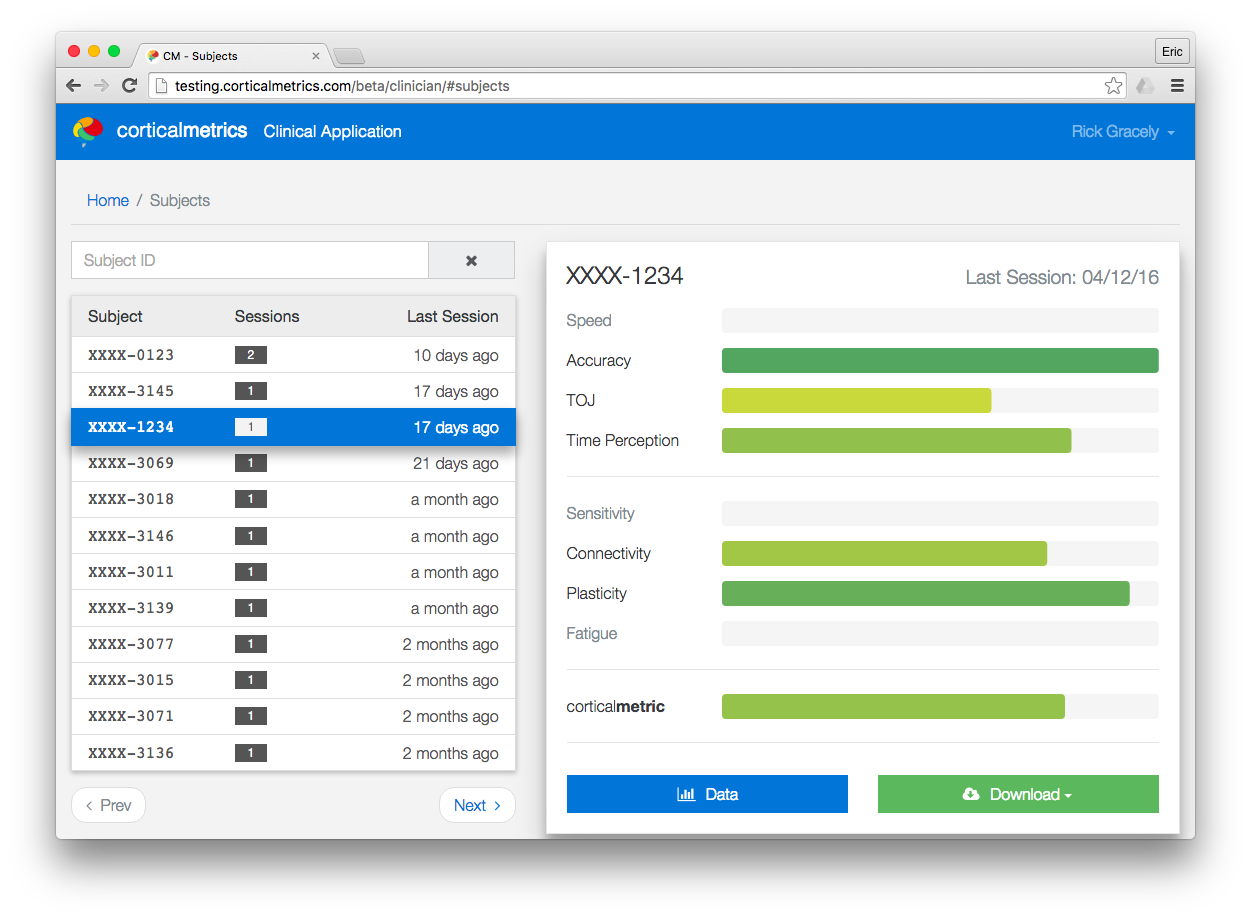Brain Gauge data improves in mTBI patient after treatment with Dr. George Roth.
Dr. George Roth has consistently provided reports that demonstrate patient improvement in corticalmetrics post-treatment.

A 40 year old patient suffered direct left parietal head trauma from a motor vehicle collision, and 8 months post-trauma, the patient continued to suffer from cognitive, visual, and vestibular disorders. Patient was also sensitive to light and noise, reported neck pain, and was unable to continue in her post-graduate program. The patient had sustained one previous concussion in 2005.
Cortical Metrics tests showed diminished function in multiple metrics. After a single treatment using Matrix Repatterning focusing on C1-C3 and the occipital, temporal, parietal, and sphenoid regions, the patient reported improved cognitive function and reduced sensitivity to light and noise. Cortical Metrics results from one day post-treatment demonstrate greatly improved function in all areas. Objective findings post treatment also revealed improvements in visual tracking and pupillary response and a disappearance of the Babinski response. The patient was able to return to their graduate program.
Acknowledgment: Thanks to Dr. George Roth for his contribution.
Have an interesting case study? Let us know!
Trauma to different areas of the brain differentially impact corticalmetrics scores

The patient from the data above was impacted in the cerebellar region.
Each of the corticalmetrics tests targets a different neural pathway and/or mechanism. Many factors contribute to the performance of an individual post-trauma on a test battery, and one of those is the impact site and/or orientation of the impact of the trauma. Other factors on test results include force of impact of the trauma, trauma history, medication, alcohol use and sleep/fatigue.
Highlighted measure: Timing Perception

Timing perception, or the ability of an individual to determine how long an event lasts, is most reliant on a pathway that includes cerebellar activity. Note the pathway indicated in the image at left. If this pathway is disrupted, then timing perception will be impacted. Other functions that the cerebellum are involved in include coordination and balance.
How is timing perception measured with the Brain Gauge?
One of the protocols in the concussion test battery is called duration discrimination (DD). What is actually measured is how well the subject can determine which of two stimuli last longer. How do we know this? A number of research studies have used TMS to block activity in the cerebellum. The result was that whenever cerebellar activity was blocked , timing perception, or the ability to differentiate the duration of two stimuli, whether they be tactile, auditory or visual, was significantly reduced.
Participate in the Beta
An important update to the Brain Gauge App is coming in the next few weeks. The update contains a complete overhaul of every feature available and some new and exciting ways to manage your patients and their progress. You can participate in the beta by requesting with the button below.
Sign up for the Brain Gauge Beta.

Now it's easier than ever to:
* Learn about the measures
* Download Data as a spreadsheet
* View Subjects Raw Scores
* Tag Patients and their conditions
Be one of the first to get your hands on Brain Gauge.
A number of clinicians have expressed interest in obtaining Brain Gauges for their patients to purchase and use at home. The advantage of this is obvious – patients can monitor their progress at home and their results will be available for the clinician to view.
Click here to get added to the Cortical Metrics Insights Mailing List
You can view previous issues of Cortical Metrics Insights here.
If you have a question, an interesting case study, or an idea for a contribution to a future issue of Brain Gauge Notes, please email us at support@corticalmetrics.com.
